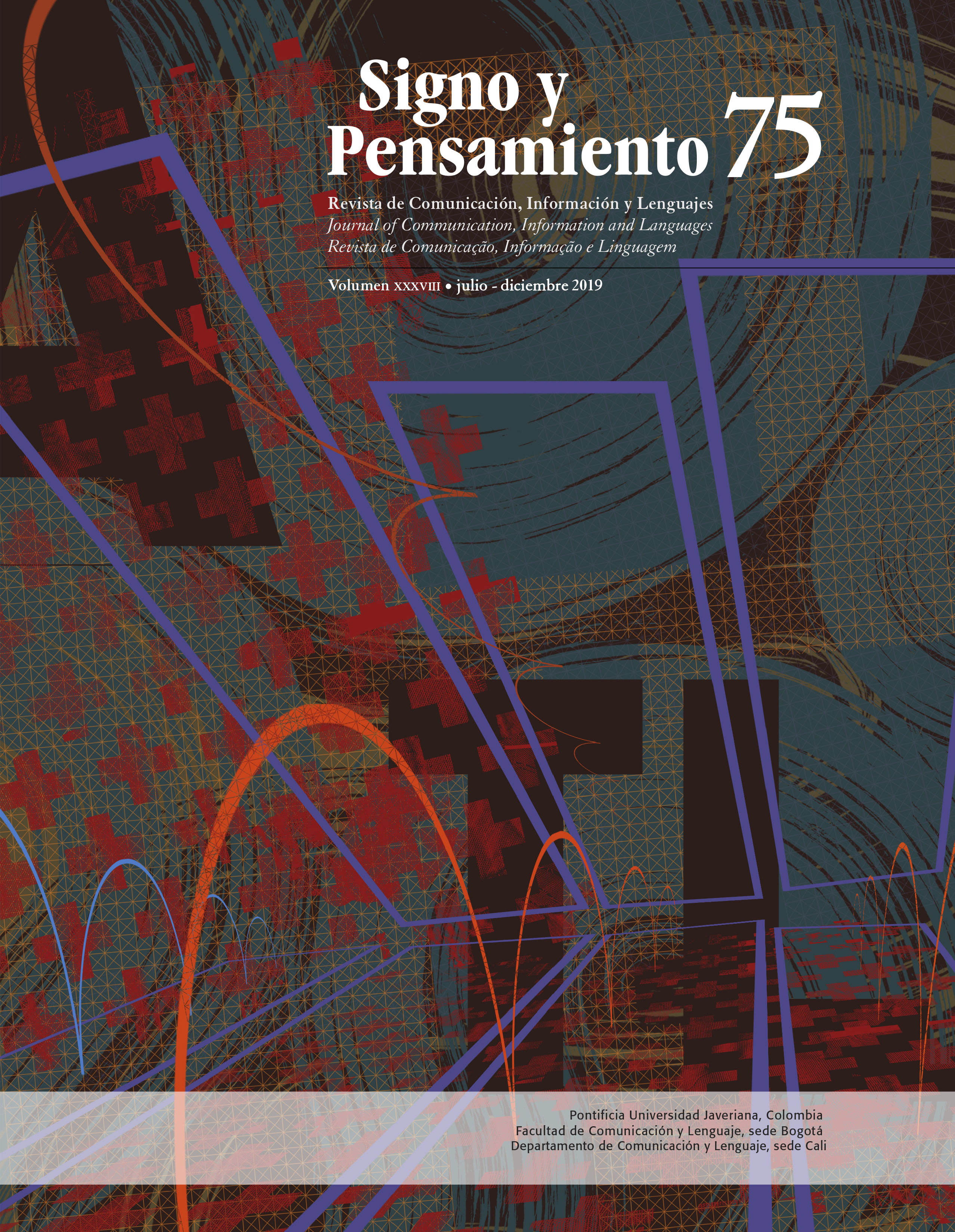Resumen
El objetivo central del presente estudio es analizar, desde una perspectiva metodológica dialéctica, distintas formas de participación en prácticas de lectura y escritura promovidas por dos maestrías, atendiendo a diferentes unidades de análisis, normativas de posgrado, planes de estudio, programas de algunos cursos y consideraciones de estudiantes y egresados frente a la experiencia de escribir una tesis. Literatura reciente afirma que la baja tasa de culminación de maestrías obedece a dificultades en la escritura de la tesis. Según enfoques socioculturales, este fenómeno se entiende no como concerniente al estudiante, sino a las situaciones educativas en las que participa. Así lo corroboran datos indicativos de que predomina más leer y escribir para evaluaciones sobre los contenidos de los cursos que corregir la tesis, con base en revisiones previas de pares o asesores.
Arnoux, E., Carlino, P., Di Stefano, M., Nogueira, S., Vitale, A., Martínez, A., … Pereira, C. (mayo, 2003). Escritura y producción de conocimiento en las carreras de posgrado. Ponencia presentada en el II Congreso Internacional Cátedra UNESCO Lectura y Escritura “Comprensión y producción de textos escritos: de la reflexión a la práctica en el aula”. Pontificia Universidad Católica de Valparaíso, Chile.
Arnoux, E. (2006). Incidencia de la lectura de pares y expertos en la reescritura de tramos del trabajo de tesis. RLA: Revista de Lingüística Teórica y Aplicada, 44(1), 95-118. Recuperado de https://dialnet.unirioja.es/servlet/articulo?codigo=2215301
Baquero, R. (2006). Sujetos y aprendizaje. Buenos Aires: Ministerio de Educación, Ciencia y Tecnología de la Nación.
Bedoya, O. (2016). Seminario-Taller formulación de pregunta o problema de investigación. (Programa). Maestría en Comunicación Educativa. Universidad Tecnológica de Pereira. Pereira
Buendía. A. (2014). La acreditación del posgrado en Argentina y México desde su dimensión institucional. Revista Mexicana de Investigación Educativa, vol. 19, No. 62, pp. 976-988.
Carlino, P. (mayo, 2003). La experiencia de escribir una tesis: contextos que la vuelven más difícil. Trabajo presentado en el II Congreso Internacional Cátedra UNESCO Lectura y Escritura, Pontificia Universidad Católica de Valparaíso, Valparaíso.
Carlino, P. (2004). El proceso de escritura académica: cuatro dificultades de la enseñanza universitaria. Educere. Revista Venezolana de Educación Superior, 8(26), 321-327. Recuperado de http://www.redalyc.org/pdf/356/35602605.pdf
Carlino, P. (2005). ¿Por qué no se completan las tesis en los postgrados? Obtáculos percibidos por maestrandos en curso y magistri exitosos. Educere. Revista Venezolana de Educación Superior, 9(30), 415-420. Recuperado de https://www.aacademica.org/paula.carlino/15.pdf
Carlino, P. (2013). Alfabetización académica diez años después. Revista Mexicana De Investigación Educativa, 18(57), 355-381. Recuperado de http://www.redalyc.org/pdf/140/14025774003.pdf
Díaz, E. (2000). Investigación básica, tecnología y sociedad. Khun y Foucault. En E. Díaz (Ed.), La posciencia. El conocimiento científico en las postrimerías de la modernidad (pp. 63-82). Buenos Aires: Biblos.
Jaramillo, H. (2009). La formación de posgrado en Colombia: maestrías y doctorados. Revista Iberoamericana de Ciencia, Tecnología y Sociedad CTS, 5(13), 131-155. Recuperado de http://www.revistacts.net/files/Volumen%205%20-%20n%C3%BAmero%2013/FINALES/Jaramillo.pdf
Larreamendy, J. (2007). Práctica conjunta e identidad en la actividad científica: el trabajo de campo en biología como escenario de aprendizaje. Bogotá: Universidad de los Andes.
Ochoa, L., & Cueva, A. (2012). Tesis y deserción: entre el compromiso y el obstáculo. Bogotá: Editorial Universidad Nacional.
Lave, J., & Wenger, E. (1991). Situated learning: Legitimate peripheral participation. Cambridge: Cambridge University Press.
Mombrú, A., & Marjetic, A. (2013). El hacedor de tesis. Avellaneda, AR: LJC Ediciones.
Ministerio de Educación. (29 de diciembre de 2011). Estándares y criterios a considerar en los procesos de acreditación de carreras de posgrado. [Resolución número160] / Recuperado de https://www.coneau.gob.ar/archivos/resoluciones/ResME160_11.pdf
Reisin, S., & Carlino, P. (agosto, 2009). Factores que favorecen u obstaculizan la finalización de una maestría en ciencias sociales. El punto de vista de los involucrados. Trabajo presentado en el I Congreso Internacional de Investigación y Práctica profesional en Psicología, XVI Jornadas de Investigación, V Encuentro de Investigadores en Psicología del Mercosur, Universidad de Buenos Aires. Recuperado de https://www.aacademica.org/000-020/391.pdf
Rosa, A. (2000). ¿Qué añade a la psicología el adjetivo cultural? Anuario de Psicología, 31(4), 27-57. Recuperado de https://dialnet.unirioja.es/servlet/articulo?codigo=2792375
Rogoff, B. (1997). Los tres planos de la actividad sociocultural: apropiación participativa, participación guiada y aprendizaje. En J. Wertsch, P. Del Río P. & A. Álvarez (Eds.), La mente sociocultural. Aproximaciones teóricas y aplicadas (pp. 111-128). Madrid: Fundación Infancia y Aprendizaje.
Samaja. J. (2010). Epistemología y metodología. Elementos para una teoría de la investigación científica. Buenos Aires: Eudeba.
Wenger, E. (2001). Comunidades de práctica. Aprendizaje, significado e identidad. Barcelona: Paidós.
Ynoub, R. (2015). Cuestión de método. Aportes para una metodología crítica. México: Cengage Learning Editores.
Esta revista científica se encuentra registrada bajo la licencia Creative Commons Reconocimiento 4.0 Internacional. Por lo tanto, esta obra se puede reproducir, distribuir y comunicar públicamente en formato digital, siempre que se reconozca el nombre de los autores y a la Pontificia Universidad Javeriana. Se permite citar, adaptar, transformar, autoarchivar, republicar y crear a partir del material, para cualquier finalidad (incluso comercial), siempre que se reconozca adecuadamente la autoría, se proporcione un enlace a la obra original y se indique si se han realizado cambios. La Pontificia Universidad Javeriana no retiene los derechos sobre las obras publicadas y los contenidos son responsabilidad exclusiva de los autores, quienes conservan sus derechos morales, intelectuales, de privacidad y publicidad.
El aval sobre la intervención de la obra (revisión, corrección de estilo, traducción, diagramación) y su posterior divulgación se otorga mediante una licencia de uso y no a través de una cesión de derechos, lo que representa que la revista y la Pontificia Universidad Javeriana se eximen de cualquier responsabilidad que se pueda derivar de una mala práctica ética por parte de los autores. En consecuencia de la protección brindada por la licencia de uso, la revista no se encuentra en la obligación de publicar retractaciones o modificar la información ya publicada, a no ser que la errata surja del proceso de gestión editorial. La publicación de contenidos en esta revista no representa regalías para los contribuyentes.



